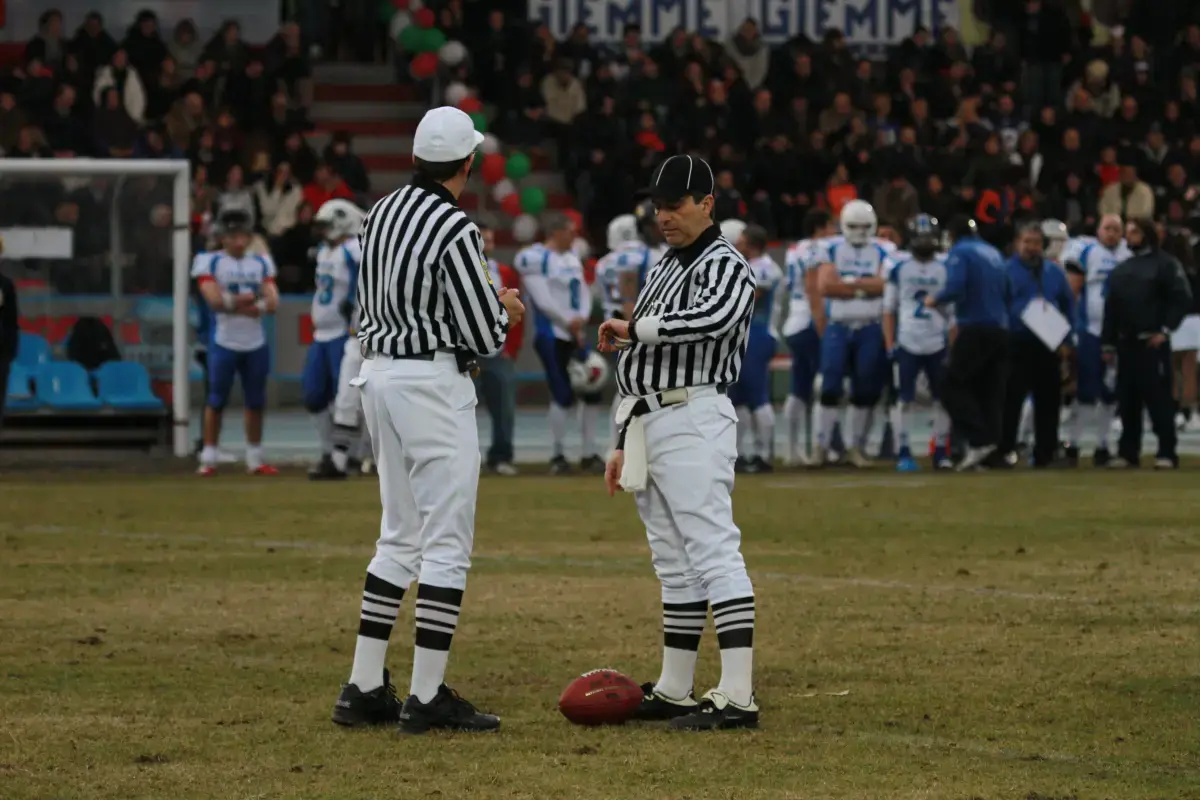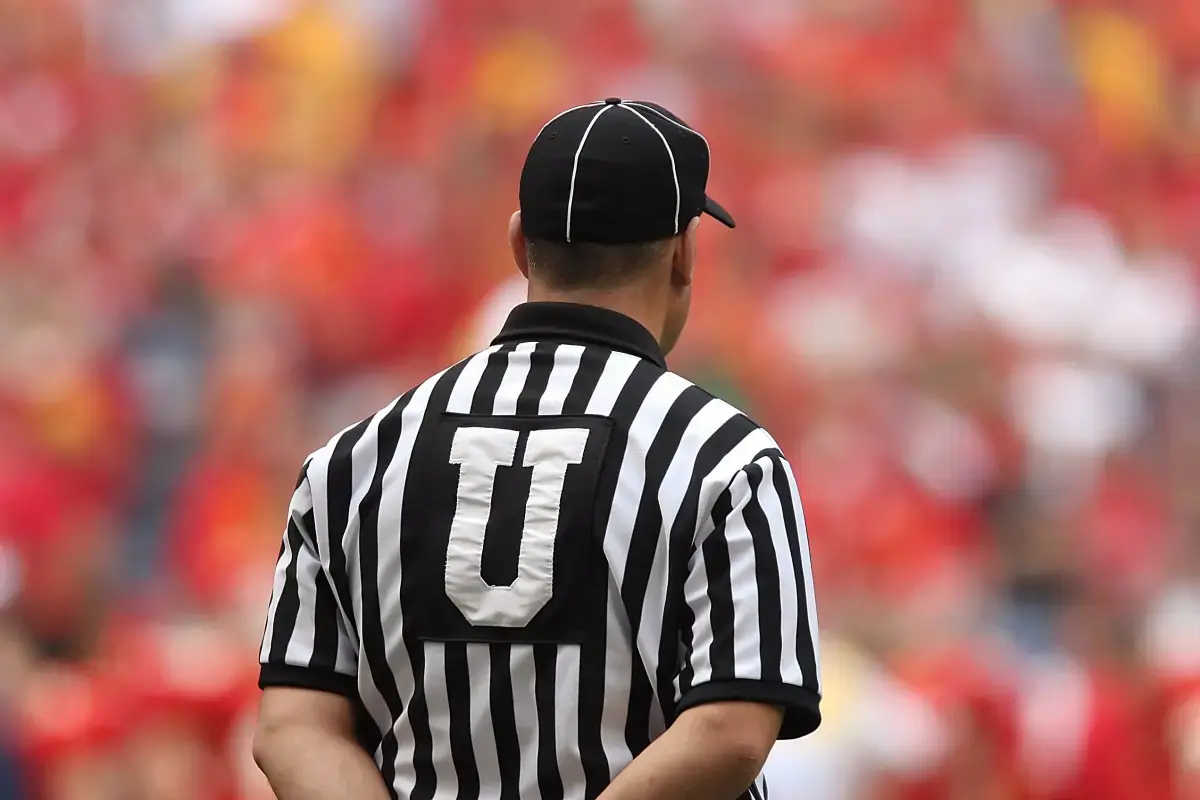
Umpire Job Description
What is a Umpire Professional?
An umpire is an official who presides over competitive sports matches. Their primary role is to enforce the rules of the game and ensure fair play. Umpires also maintain order on the playing field and resolve disputes between players. Some umpires also keep score or officiate in other capacities, such as serving as a line judge in tennis. Umpires typically wear distinguishing clothing so that they can easily be identified by players and spectators alike. In baseball, for example, umpires dress in black from head-to-toe and wear masks when calling balls and strikes. Baseball umpires also carry equipment such as a brush (used to sweep away dirt from home plate), a whistle (used to signal infractions), and beanbags (used to make calls at first or third base). In most sports, there is a hierarchy among umpires based on experience and skill level.

What does a Umpire Expert do?
Novice officials usually start out working lower-level games before being promoted to more prestigious competitions. The best umpires are often assigned to work major league games or championship tournaments. Many professional sport leagues require that their officials undergo extensive training before being allowed to officiate regular season games. There are both classroom components and on-field practical examinations involved in becoming an officiating certified professional another way to become an umpire is by taking an online course which will give you the basics of what you need to know but not offer any certification like the ones above do .After completing the training program successfully, newly minted referees or umpires must then pass a written test administered by their respective league before they can earn their official license/badge."An NFL referee goes through close to 30 hours of training per week during football season,

What are the Skills of a Umpire?
An umpire is a person who officiates at a sporting event. The main job of an umpire is to enforce the rules of the game and ensure that the players are playing fairly. There are different types of umpires, each with their own specific duties. Baseball umpires, for example, are responsible for calling balls and strikes, while football umpires are responsible for calling penalties. Umpires must have a thorough knowledge of the rules of the sport they are officiating. They must be able to make quick decisions in order to keep the game flowing smoothly.

What makes an Expert Umpire?
Umpires must also be impartial and objective in their decision-making. Some umpires start out as players themselves before moving into officiating. Others begin their careers as referees or officials at lower levels of competition, such as youth leagues or college sports. Many aspiring umpires attend training camps or workshops to learn more about officiating techniques.

What level of Experience & Qualifications are required to be a Umpire?
Industry Experience: Umpires should have a minimum of 5 years of experience in the sport they are officiating, including at least 3 years as an umpire or referee. 2. Training: Umpires must complete a comprehensive training program that covers rules and regulations, game management, and communication skills. They must also attend annual refresher courses to stay up-to-date on changes in the sport and its rules. 3. Qualifications: Umpires must be certified by their respective governing body (e.g., Major League Baseball for baseball). This certification requires passing written tests and practical evaluations of their ability to make calls correctly and consistently during games. 4. Education: Most umpires have at least a high school diploma or equivalent; some may have college degrees in sports management or related fields such as physical education or recreation administration.

What is the Salary of a Umpire?
The salary expectations of a umpire can vary greatly depending on the level of experience and expertise. At the junior level, umpires typically earn an hourly wage or a per-game fee. This rate is usually between $20-$50 per game, depending on the league and region. Umpires at this level may also receive additional compensation for travel expenses or other costs associated with officiating games. At the intermediate level, umpires may be paid a higher hourly rate or per-game fee than those at the junior level. This rate is usually between $50-$100 per game, again depending on the league and region. Umpires at this level may also receive additional compensation for travel expenses or other costs associated with officiating games. At the senior level, umpires are typically paid an annual salary rather than an hourly wage or per-game fee. The average salary for senior umpires ranges from $30,000 to $60,000 annually in most leagues and regions across North America. Senior umpires may also receive additional compensation for travel expenses or other costs associated with officiating games as well as bonuses based on performance evaluations from their supervisors throughout the season.

What are the Working Conditions for a Umpire?
Umpires typically work in outdoor settings, often in hot and humid conditions. They must be able to stand for long periods of time and have the physical stamina to keep up with the pace of play. Umpires must also possess excellent communication skills, as they are responsible for making decisions quickly and communicating them clearly to players, coaches, and spectators. Umpires must also be knowledgeable about the rules of the game they are officiating and be able to interpret them accurately. Additionally, umpires should have a good understanding of sportsmanship principles so that they can maintain order on the field or court. Finally, umpires should have strong problem-solving skills so that they can handle any disputes or disagreements that may arise during a game.

What are the roles and responsibilities of a Umpire?
enforcing the laws of the game
ensuring that play is fair and controlled
settling disputes between players
issuing warnings and penalties to players who break the rules
keeping track of time and score during a match
calling "no ball" or "wide ball" as appropriate
signal dead ball when necessary
interpret interpretations of the rules if there are any queries from either team
consult with other umpires (if there are any) to help make decisions
check player equipment meets safety standards
take charge of coin toss at start of match
call start and end of innings
award runs as batsmen run between wickets
declare batsman out according to laws of game
signal boundaries
call Overs
Record deliveries & Runs
submit accurate report after match
keep calm in high pressure situations 20 enforce good sporting behaviour

Where can I find Umpire jobs?
- Create a profile on gigexchange and promote your Umpire skills to advertise you are Open to New Work Opportunities
- Ensure your Resume (or CV), or online work profile is up to date and represents your skills and experience. Ensure your reputation reflects your ability & attitude.
- Apply for Umpire Jobs advertised on gigexchange.
- Practise Umpire interview techniques to ensure you represent your personality and ability succinctly and confidently.
- Accept the job offer if the salary meets your expectations and the employer mission and purpose reflects your core values.
Jobs
What are the best job boards for Umpire jobs?

How can I hire Umpire staff online for my business?
The best job board for recruiting Umpire experts is gigexchange.com. Advertise full-time, part-time or contract jobs to find, hire & recruit trusted, experienced and talented Umpire candidates near you.

Are Umpire roles in demand in 2026?
Umpire experts are still in high demand in 2026. If you are an experienced Umpire or looking to train and become one. The job market is looking strong for Umpire jobs near me.